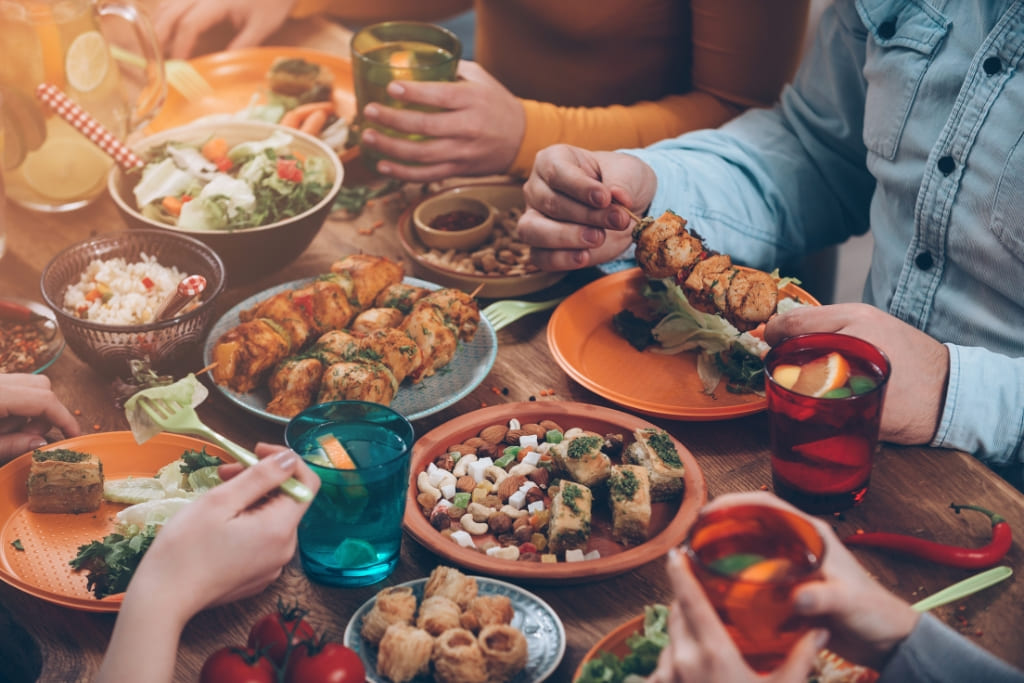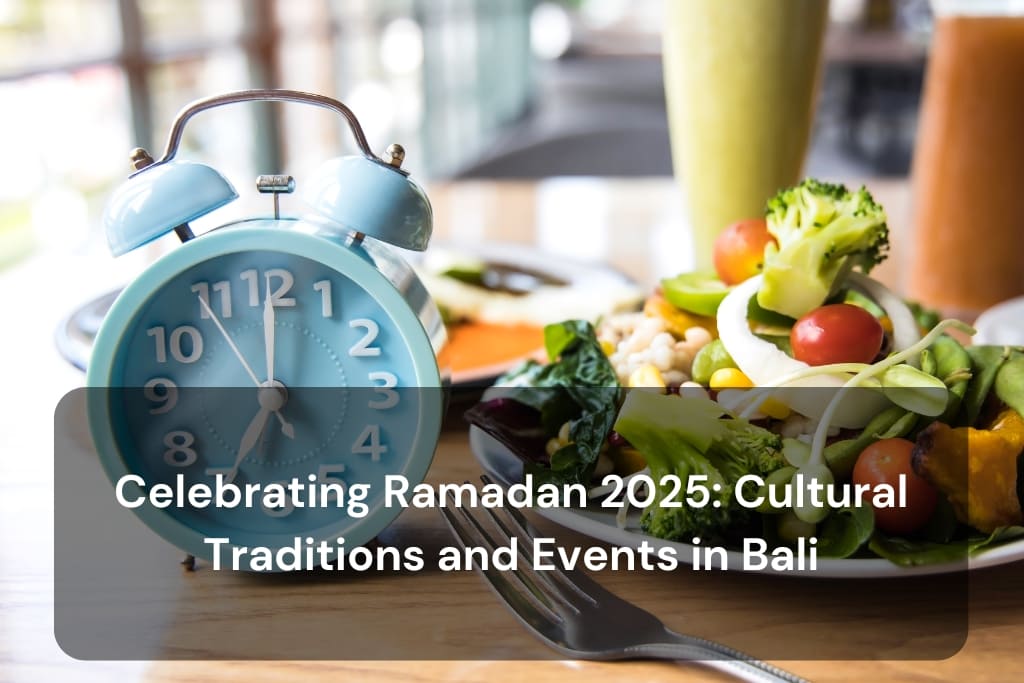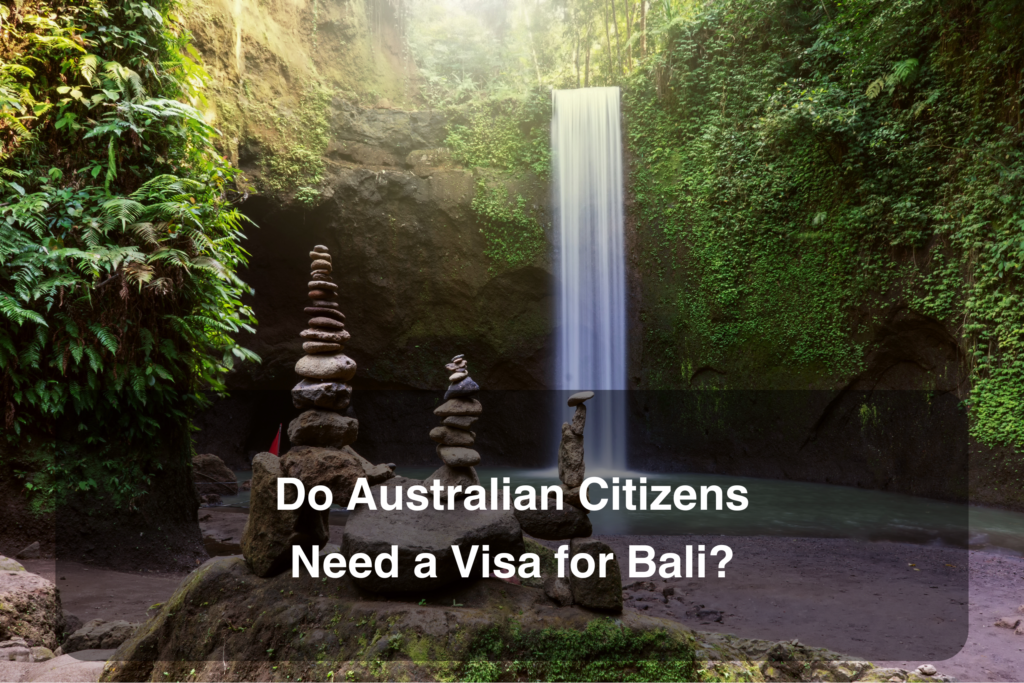Bali, known for its vibrant cultural landscape and predominantly Hindu population, also hosts a significant Muslim community that observes the holy month of Ramadan with unique traditions and events. Despite being a minority, Muslims in Bali have maintained their cultural practices while embracing the island’s diverse religious harmony. This article explores the fascinating Ramadan traditions in Bali, highlighting how the island celebrates this sacred period with a blend of local and Islamic customs.
1. Understanding Ramadan in Bali
Ramadan, the ninth month of the Islamic calendar, is a time of fasting, reflection, and community bonding for Muslims worldwide. In Bali, where Muslims are a minority, Ramadan is observed with respect and tolerance from the broader community. The fasting period typically begins before sunrise and ends at sunset, with Muslims gathering for sahur (pre-dawn meal) and iftar (evening meal) to break their fast.
For Ramadan 2025, which falls from February 28 to March 30, Muslims in Bali will follow the fasting schedule closely, with imsak (the cut-off time before fasting begins) at approximately 04:30 and maghrib (evening prayer and breaking of the fast) at around 18:01.
2. Unique Ramadan Traditions in Bali
Bali’s Muslim community has developed distinct traditions that reflect the island’s cultural richness and religious tolerance:
Megibung: A Shared Meal Tradition
One of the most notable traditions is Megibung, a communal meal practice that dates back to the 17th century. Originating from the Karangasem Kingdom, Megibung involves sharing food from a large communal dish, fostering a sense of community and togetherness among Muslims during Ramadan. This tradition is particularly observed in areas like Kampung Islam Kepaon, Denpasar, where residents gather to break their fast together after maghrib prayers.
Ngabuburit: Passing Time Before Iftar
Ngabuburit wis a popular activity among Muslims in Indonesia, including Bali, where they spend time before breaking their fast by engaging in various activities such as reading the Quran, attending religious lectures, or participating in community events. In areas like Kampung Jawa and Kampung Bugis, Muslims often gather in mosques or community centers for these activities.
Masjids as Community Hubs
Mosques in Bali become vibrant centers of activity during Ramadan, hosting tarawih prayers, Quran recitation sessions, and other community events. Masjid Nurul Huda in Gelgel Village and Masjid Agung Palapa in Dreamland are notable examples where Muslims gather for spiritual activities and social bonding.
3. Ramadan Events and Promotions in Bali

Bali’s top resorts and restaurants offer special Ramadan promotions, making the island an attractive destination for those celebrating the holy month:
- Iftar Buffets and Suhoor Delights: Hotels like Hotel Indigo Bali Seminyak Beach and ARYADUTA Bali host lavish Iftar buffets featuring Indonesian and Middle Eastern cuisine. These events provide a unique opportunity for both Muslims and non-Muslims to experience the festive atmosphere of Ramadan.
- Cultural Performances: Visitors can enjoy traditional Balinese performances such as gamelan music at cultural centers like the Bali Arts Center in Denpasar. These events allow tourists to immerse themselves in Bali’s rich cultural heritage while respecting the Ramadan celebrations.
- Picnics and Community Gatherings: Picnics in public spaces like Taman Pancing in Denpasar are popular activities during Ramadan. These gatherings offer a relaxed setting for socializing and enjoying local snacks before breaking the fast.
4. Eid al-Fitr Celebrations in Bali
Following the month of Ramadan, Muslims celebrate Eid al-Fitr, known locally as Lebaran, which marks the end of fasting. This festive period, typically observed from March 30 to April 8, 2025, is a time for family reunions, feasting, and exchanging gifts. In Bali, Eid al-Fitr is celebrated with traditional dishes like ketupat and beef rendang, and it’s common for Muslim families to share these delicacies with their neighbors.
5. Respecting Ramadan in Bali
While Bali’s predominantly Hindu population means that daily life continues relatively unchanged during Ramadan, visitors can show respect by being mindful of fasting times and cultural practices:
- Dining and Drinking: Restaurants generally remain open, but it’s considerate to avoid eating or drinking in public during fasting hours.
- Cultural Sensitivity: Participate in local events and traditions to foster understanding and appreciation of Ramadan customs.
Conclusion
Ramadan in Bali is a unique blend of Islamic traditions and Balinese cultural harmony. The island’s Muslim community celebrates this sacred month with distinct practices like Megibung and Ngabuburit, while top resorts offer special Ramadan events and promotions. Whether you’re a Muslim observing the fast or a visitor interested in cultural experiences, Bali provides a welcoming environment to explore and appreciate the richness of Ramadan traditions.





